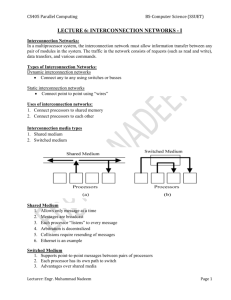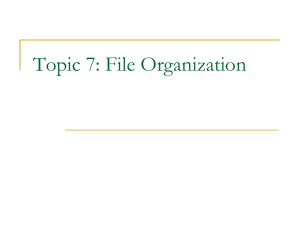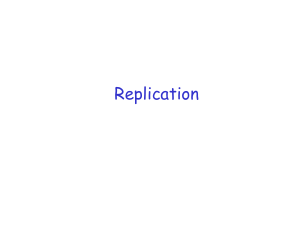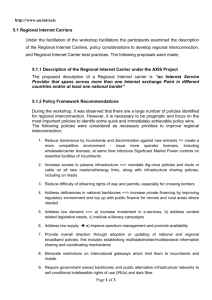Sequential Consistency Example
advertisement
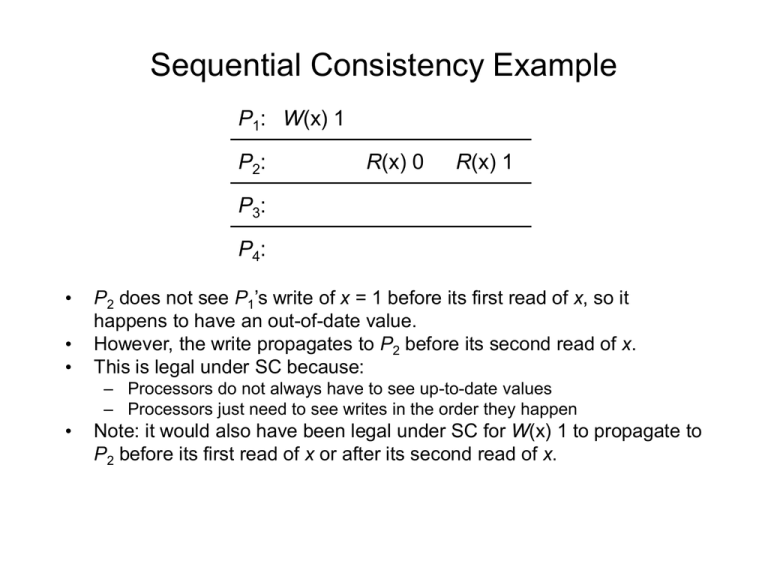
Sequential Consistency Example P1: W(x) 1 P2: R(x) 0 R(x) 1 P3: P4: • • • P2 does not see P1’s write of x = 1 before its first read of x, so it happens to have an out-of-date value. However, the write propagates to P2 before its second read of x. This is legal under SC because: – Processors do not always have to see up-to-date values – Processors just need to see writes in the order they happen • Note: it would also have been legal under SC for W(x) 1 to propagate to P2 before its first read of x or after its second read of x. Sequential Consistency Example (cont’d) P1 P1: W(x) 1 P2 P P x=1 CA M CA M Interconnection Network P CA M P3 P1 writes x = 1. Then this updated value is sent over the interconnection network to the other processors. P CA M P4 Sequential Consistency Example (cont’d) P1 P1: W(x) 1 P2: R(x) 0 P x=1 CA P2 P x=0 M CA M Interconnection Network P CA M P3 Because sequential consistency does not assume a global clock, the write to x hasn’t propagated to P2 before P2 reads x locally. P CA M P4 Sequential Consistency Example (cont’d) P1 P1: W(x) 1 P2: R(x) 0 P2: R(x) 1 P x=1 CA M P2 P x=0 x=1 CA M Interconnection Network P CA M P3 By the time P2 reads x the second time, the remote write by P1 has propagated through the interconnection network. P CA M P4
